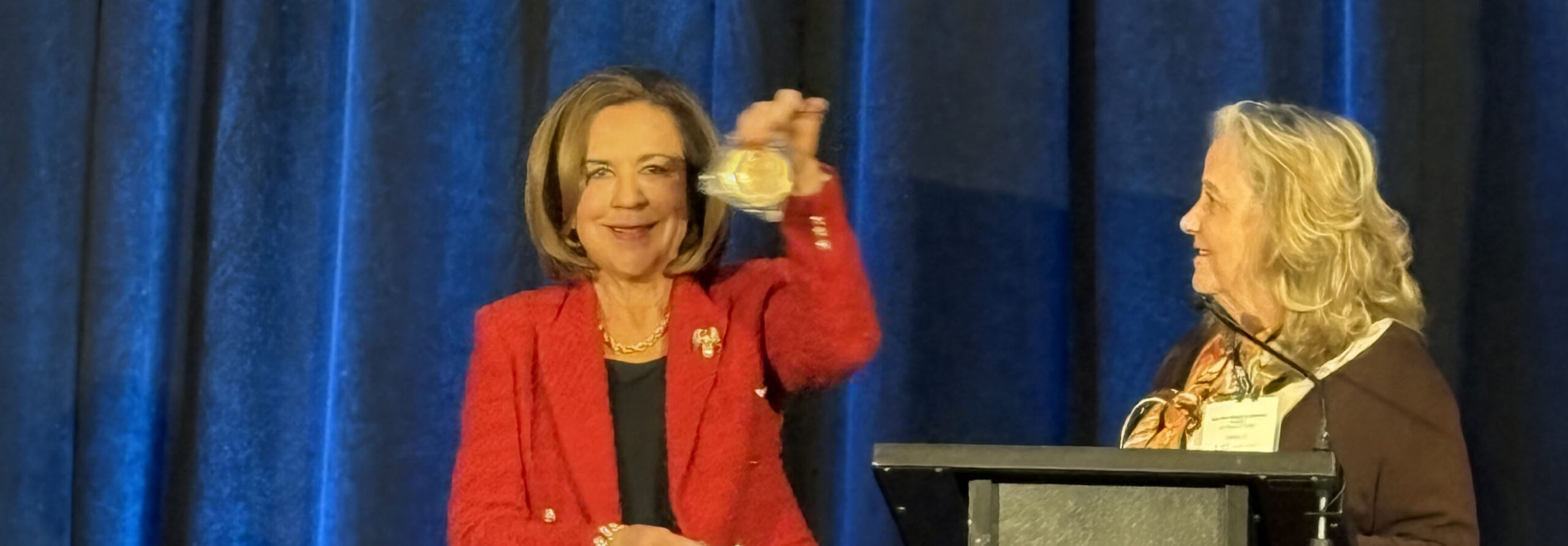
If you were to have asked me how I envisioned my retirement, I could not have conjured up how fabulous it has been. After 21 years on the California bench, I retired in 2006 and haven’t slowed down since. Some people complain that they are bored by retirement. I have no idea what they’re thinking. I’m so busy and engaged that I have no idea how I had time to work.
I have been a judicial educator for more than 25 years and spent lots of time giving back to the profession while still on the bench. I would speak at out-of-state conferences, speak at California judicial education programs and, of course, teach at The National Judicial College. Some of that work included international travel, a particular passion of mine. I became involved with law professors who had founded a field called therapeutic jurisprudence (TJ)1 and wrote a law review article coupling TJ and drug treatment courts.2 This led to my attendance at the first International Conference on Therapeutic Jurisprudence in Winchester, England in 1998.
I was in Israel in 2005 and was chatting with consulate staff when my impending retirement came up. They said as soon as the deed was done I must come back and speak to Dorit Beinish, the new president judge of the Supreme Court of Israel and president judges in each division about drug courts. My official retirement day, Feb. 29, 2006, was spent sipping champagne at the U.S. Consulate in Jerusalem. My trip back to Jerusalem to speak with the judges was funded by the State Department. While there, I taught at the Institute for Advanced Judicial Studies in Neve Ilan, Israel.
In 2008 the State Department also sent me to Chile to do onsite technical assistance with their drug courts and the Organization of American States brought me to Argentina where the first drug court was opened in Salta in 2014.
The Second International TJ Conference was in Perth, Australia in 2008 where the keynote speaker fell ill and I was substituted in at the last minute. How fortuitous that turned out to be. As a direct result of that trip I was one of 100 people nominated to become South Australia’s Thinker in Resident. Ultimately, I was appointed by the Premier and spent three months consulting on the justice system. I produced a report with my findings and recommendations.3 It was an incredible experience and, coincidentally, the longest I’d ever been away from home.
Because of my work as Thinker in Residence, I became known in Australia’s national legal community. I’ve taught at the National Judicial College of Australia; keynoted the national Drug Treatment Court Conference in Melbourne; keynoted the Community Legal Center’s conference in Tasmania; keynoted the Victorian Association of Drink & Drug Driver Services conference; key noted the Australian Institute of Criminology conference in Adelaide and, spoken at three AustralAsian Institute of Judicial Administration conferences. On the academic side I’ve spoken at Griffith University School of Criminology in Brisbane and Flinders University in South Australia. I was a visiting scholar at the University of Tasmania School of Law.
I’ve been to Bermuda three times for training and will present a workshop in September during a pleasure cruise from New York. The first time I combined tourism with teaching was on a small ship trip to Holland during tulip season. I met a TJ friend in Delft and he whisked me to Utrecht where I spoke to “Raad voor de rechtspraak” (Council for Court-Jurisdiction, The Hague). My fellow travelers on the tour were blown away by my adventure.
I’ve taken seven trips to New Zealand helping them set up their Alcohol and Other Drug Treatment Courts. Beginning in 2010 when I put on a drug court workshop I became the official international consultant to the courts. The courts opened in Auckland in 2012 as a five year pilot project and are blooming. Their Maori name is Te Whare Whakapiki Wairua (“The House that Heals the Spirit”). I am in constant contact with the judges who preside and have sat with them on the bench during court sessions each time I’m there. I’ll be going back for a big ceremony on March.
Besides all the national and international travel, I’ve published 10 articles since retirement and enjoy writing and research.4
Last, but by no means least, retirement has allowed me more time with my family. I downsized a big, two-story house and now live in a 1,056 sq. ft. condo near my sons. I have a tradition of taking my grandchildren on an “international adventure” when they are 10 or 11. We’ve gone to Costa Rica, the Galapagos, Egypt, Grand Cayman and on safari in Kenya and Tanzania. In the Spring, I take my second granddaughter on “A Taste of Italy” trip to visit some of her relatives near Genoa and take cooking classes in Tuscany and Rome. I’m known as “Venture Grandma.”
Editor’s Note: Life expectancy rates are growing in the United States, as most Americans are expected to live 78.8 years, according to Centers for Disease Control and Prevention.
But for many judges nationwide, laws on mandatory retirement ages have not changed, leaving them with more years than ever to explore life and opportunities when their work on the bench is complete. More judges are finding themselves with ample time to explore life beyond the bench, finding ways to explore a new professional identity alongside new hobbies and interests. We’ve heard from judges who are training animals, writing books, traveling the world and caring for grandchildren. Many are consulting, traveling, teaching or returning to law practices.
Here, the Hon. Peggy Fulton Hora chronicles her experiences as a judicial educator, a “Thinker in Residence” in Australian academic communities, a published author, and a worldwide traveler.
The NJC would love to hear from our former course participants on how they’ve spent their time after the bench. We’d like to share your experiences with our readers. If you’d like to share your story or know of a judge who should be profiled, please visit www.judges.org/mystory
- http://therapeuticjurisprudence.org
- Hora, Peggy Fulton, Hon. William G. Schma and Rosenthal, John T.A., “Therapeutic Jurisprudence and the Drug Treatment Court Movement: Revolutionizing the Criminal Justice System’s Response to Drug Abuse and Crime in America.” Notre Dame Law Review Vol. 74, No. 2., (1999)
- https://youtu.be/fJGZkHziKOE
- For a complete list of Judge Hora’s publications, see http://www.judgehora.com

The National Judicial College has awarded Missouri Supreme Court Judge Mary Russell with the Sandra Day O�...

Emeritus Trustee Bill Neukom (left) with former Board of Trustee Chair Edward Blumberg (right) at the NJC 60...

The National Judicial College, the nation’s premier institution for judicial education, announced today t...

The National Judicial College (NJC) is mourning the loss of one of its most prestigious alumni, retired Uni...

As threats to judicial independence intensify across the country, the National Judicial College (NJC) today...